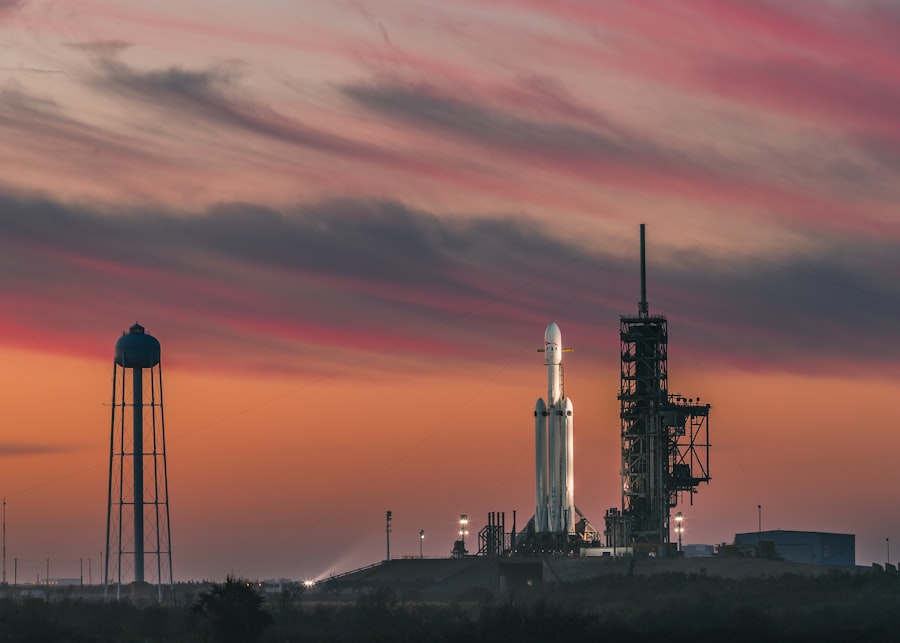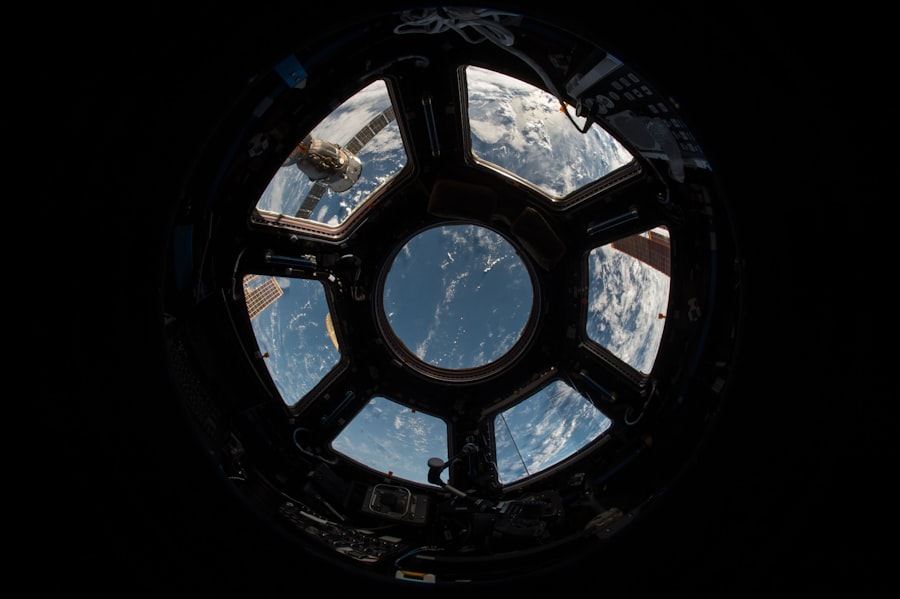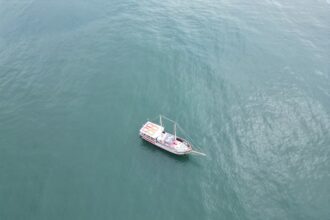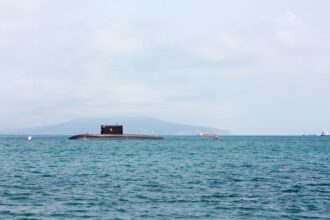In the aftermath of World War II, the United States found itself in a unique position, grappling with the need to bolster its technological capabilities while simultaneously confronting the moral implications of its wartime actions. The recruitment of Nazi experts became a controversial yet strategic maneuver aimed at enhancing American aerospace technology. The U.S. government, recognizing the advanced knowledge and skills possessed by German scientists, engineers, and technicians, initiated programs such as Operation Paperclip. This covert operation facilitated the immigration of numerous German experts, many of whom had played pivotal roles in the Nazi regime’s military and aerospace advancements. The motivations behind this recruitment were multifaceted. On one hand, the Cold War was looming, and the U.S. sought to maintain its technological edge over the Soviet Union. On the other hand, the expertise of these individuals was seen as essential for advancing American aerospace initiatives, particularly in rocketry and aeronautics. Figures like Wernher von Braun, who had been instrumental in developing the V-2 rocket for Nazi Germany, became central to America’s space ambitions. The decision to bring these experts to the U.S. was not without its critics, as many questioned the ethical implications of employing individuals who had contributed to a regime responsible for horrific atrocities.
Key Takeaways
- The recruitment of Nazi experts in American aerospace was facilitated by Operation Paperclip, which aimed to harness German scientific knowledge for American military and technological advancement.
- The impact of Nazi expertise on American aerospace technology was significant, with experts like Wernher von Braun playing a key role in the development of the American space program and the creation of NASA.
- The controversial legacy of Nazi experts in American aerospace raises ethical considerations about employing individuals with ties to the Nazi regime, despite their contributions to technological advancement.
- The assimilation of Nazi experts into American aerospace culture was met with mixed public perception, as their involvement in the American space program sparked debates about their past affiliations and actions during World War II.
- The collaboration between Nazi experts and American aerospace scientists led to lasting effects on American aerospace technology and innovation, shaping the trajectory of space exploration and the aerospace industry.
The impact of Nazi expertise on American aerospace technology
The infusion of Nazi expertise into American aerospace technology had profound and far-reaching effects. The knowledge and experience that these scientists brought with them significantly accelerated the development of various aerospace projects. For instance, Wernher von Braun’s work on rocket propulsion laid the groundwork for the United States’ early space missions.
His leadership in the development of the Redstone rocket ultimately enabled the launch of America’s first satellite, Explorer 1, in 1958, marking a significant milestone in the Space Race. Moreover, the methodologies and engineering principles introduced by these experts revolutionized American aerospace practices. Their understanding of aerodynamics, materials science, and propulsion systems contributed to advancements in both military and civilian aviation.
The integration of German engineering techniques into American projects led to innovations that would shape the future of aerospace technology, including improvements in aircraft design and performance. This transfer of knowledge not only enhanced national security but also positioned the United States as a leader in global aerospace innovation.
The controversial legacy of Nazi experts in American aerospace

The legacy of Nazi experts in American aerospace is undeniably controversial, marked by a complex interplay of technological advancement and moral ambiguity. While their contributions undeniably propelled American aerospace forward, they also raised significant ethical questions about complicity and accountability. Many of these scientists had been directly involved in projects that supported the Nazi war machine, leading to debates about whether their expertise justified their past actions.
This duality is evident in the public perception of figures like von Braun. While he is often celebrated as a pioneer of space exploration, his association with the Nazi regime casts a long shadow over his achievements. Critics argue that by employing these individuals, the U.
government tacitly endorsed their past actions, thereby complicating the narrative of American exceptionalism. The legacy of these experts serves as a reminder that technological progress can come at a moral cost, prompting ongoing discussions about ethics in science and engineering.
The ethical considerations of employing Nazi experts in American aerospace
| Consideration | Impact |
|---|---|
| Ethical implications | Potential damage to reputation and public trust |
| Legal concerns | Possible violation of human rights laws |
| Historical sensitivity | Risk of offending individuals and communities affected by Nazi atrocities |
| Ethical responsibility | Obligation to uphold moral standards and values |
The ethical considerations surrounding the employment of Nazi experts in American aerospace are complex and multifaceted. On one hand, proponents argue that their technical skills were indispensable for national security and technological advancement during a critical period in history. The urgency of the Cold War necessitated rapid progress in aerospace capabilities, leading some to view the recruitment of these experts as a pragmatic decision in service of a greater good.
Conversely, critics contend that employing individuals with ties to a regime responsible for genocide raises profound moral questions. The ethical implications extend beyond individual actions to encompass broader societal values regarding accountability and justice. By integrating these experts into American institutions, there is an inherent risk of normalizing their past affiliations and diminishing the gravity of their involvement in wartime atrocities.
This tension between utilitarianism and moral responsibility continues to resonate in contemporary discussions about ethics in science and technology.
The role of Nazi experts in the development of American space exploration
Nazi experts played a pivotal role in shaping the trajectory of American space exploration during the mid-20th century. Their advanced knowledge of rocketry and propulsion systems laid the foundation for significant milestones in space travel. Wernher von Braun’s leadership at NASA’s Marshall Space Flight Center was instrumental in developing the Saturn V rocket, which ultimately enabled humans to land on the Moon during the Apollo 11 mission in 1969.
The contributions of these experts extended beyond technical innovations; they also influenced organizational structures and project management within NASTheir experience in large-scale military projects provided valuable insights into efficient resource allocation and team dynamics, which were crucial for managing complex space missions. As a result, the integration of Nazi expertise not only advanced technological capabilities but also transformed how space exploration was approached within American institutions.
The contributions of Nazi experts to the advancement of American aerospace industry

The contributions of Nazi experts to the advancement of the American aerospace industry are evident across various domains, from military applications to commercial aviation. Their expertise facilitated breakthroughs in jet propulsion technology, which significantly improved aircraft performance and efficiency. Innovations such as swept-wing designs and advanced materials were directly influenced by German engineering principles, leading to faster and more capable aircraft.
Additionally, these experts played a crucial role in establishing research institutions and fostering collaboration between government agencies and private industry. Their presence helped cultivate a culture of innovation within American aerospace, encouraging investment in research and development that would yield long-term benefits for both national defense and commercial aviation sectors. The legacy of their contributions continues to be felt today as advancements in aerospace technology build upon the foundations laid during this transformative period.
The assimilation of Nazi experts into American aerospace culture
The assimilation of Nazi experts into American aerospace culture was a complex process marked by both integration and resistance. While many scientists found opportunities to contribute meaningfully to their new environment, they also faced challenges related to their past affiliations. Some experienced skepticism from colleagues who were wary of their backgrounds, leading to a need for these individuals to navigate their identities within a new professional landscape.
Despite initial resistance, many Nazi experts successfully integrated into American aerospace culture by demonstrating their technical prowess and commitment to advancing national interests. Their contributions were often recognized through promotions and leadership roles within organizations like NASA and various defense contractors. Over time, their expertise became an integral part of American aerospace identity, shaping not only technological advancements but also influencing organizational practices and cultural norms within the industry.
The influence of Nazi experts on American aerospace research and development
The influence of Nazi experts on American aerospace research and development is evident in numerous projects that have shaped modern aviation and space exploration.
The methodologies they introduced became foundational elements in research programs aimed at developing cutting-edge technologies.
Moreover, their presence fostered an environment conducive to collaboration between scientists from diverse backgrounds. This cross-pollination of ideas led to innovative solutions that addressed complex challenges within aerospace engineering. As a result, many breakthroughs can be traced back to the foundational work laid by these experts, underscoring their lasting impact on research agendas that continue to drive advancements in aerospace technology today.
The public perception of Nazi experts in American aerospace
Public perception of Nazi experts in American aerospace has evolved over time, reflecting broader societal attitudes toward history, morality, and technological progress. Initially, many Americans viewed these individuals through a lens of pragmatism; their expertise was seen as essential for national security during a tense geopolitical climate. However, as historical narratives surrounding World War II have become more nuanced, public sentiment has shifted toward a more critical examination of their legacies.
Today, discussions about Nazi experts often evoke mixed feelings among the public. While some celebrate their contributions to space exploration and technological advancement, others grapple with the ethical implications of employing individuals associated with a regime responsible for immense suffering. This ambivalence highlights an ongoing struggle to reconcile technological progress with moral accountability—a theme that resonates deeply within contemporary discourse on ethics in science and technology.
The collaboration between Nazi experts and American aerospace scientists
The collaboration between Nazi experts and American aerospace scientists marked a significant chapter in the history of technological advancement. This partnership was characterized by an exchange of ideas that transcended national boundaries and ideological divides. Many American scientists recognized the value of collaborating with their German counterparts, leveraging their expertise to accelerate progress on critical projects.
This collaboration often took place within institutional frameworks established by organizations like NASA and various defense contractors. Joint efforts led to groundbreaking developments in rocket technology, aerodynamics, and materials science—fields where German scientists had previously excelled. As these collaborations flourished, they not only advanced specific projects but also fostered a culture of innovation that would define American aerospace for decades to come.
The lasting effects of Nazi expertise on American aerospace technology and innovation
The lasting effects of Nazi expertise on American aerospace technology and innovation are evident across multiple dimensions of modern aviation and space exploration. The foundational principles established by these experts continue to inform contemporary research agendas and engineering practices within the industry. Their contributions have paved the way for advancements such as reusable rocket technology, satellite systems, and advanced aircraft designs that push the boundaries of what is possible.
Moreover, the ethical considerations surrounding their employment have prompted ongoing discussions about accountability within scientific communities. As society grapples with complex moral dilemmas related to technology and innovation, the legacy of Nazi experts serves as a cautionary tale about the intersection of ethics and progress. Ultimately, their influence remains woven into the fabric of American aerospace history—a testament to both human ingenuity and the complexities inherent in our pursuit of knowledge and advancement.
The involvement of Nazi experts in American aerospace is a complex and often controversial topic, shedding light on the post-World War II era when the United States sought to leverage German expertise to advance its own technological capabilities. A related article that delves into this subject can be found on the website “In The War Room.” This article explores the intricacies of Operation Paperclip, a secret program that brought former Nazi scientists to the U.S. to aid in the development of aerospace technology. For more detailed insights, you can read the full article by visiting In The War Room.
WATCH THIS! 🪖How Stolen Nazis Built Cold War Power
FAQs
What is the article about?
The article discusses the involvement of Nazi experts in American aerospace following World War II.
Who were the Nazi experts in American aerospace?
Nazi experts in American aerospace were scientists, engineers, and technicians who had worked for the Nazi regime in Germany during World War II and were brought to the United States as part of Operation Paperclip.
What was Operation Paperclip?
Operation Paperclip was a secret program conducted by the United States government to recruit German scientists, engineers, and technicians, including former members of the Nazi Party, to work for the United States after World War II.
What role did the Nazi experts play in American aerospace?
The Nazi experts played a significant role in advancing American aerospace technology, particularly in the fields of rocketry and missile development. Many of them were instrumental in the development of the US space program and the creation of NASA.
What impact did the Nazi experts have on American aerospace?
The Nazi experts made significant contributions to the advancement of American aerospace technology, helping the United States to become a leader in space exploration and missile development during the Cold War era.
Were there any controversies surrounding the involvement of Nazi experts in American aerospace?
Yes, there were controversies surrounding the recruitment of Nazi experts, as many of them had been involved in war crimes and atrocities during World War II. The decision to bring them to the United States was met with criticism and ethical concerns.




